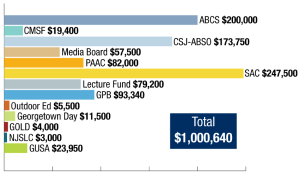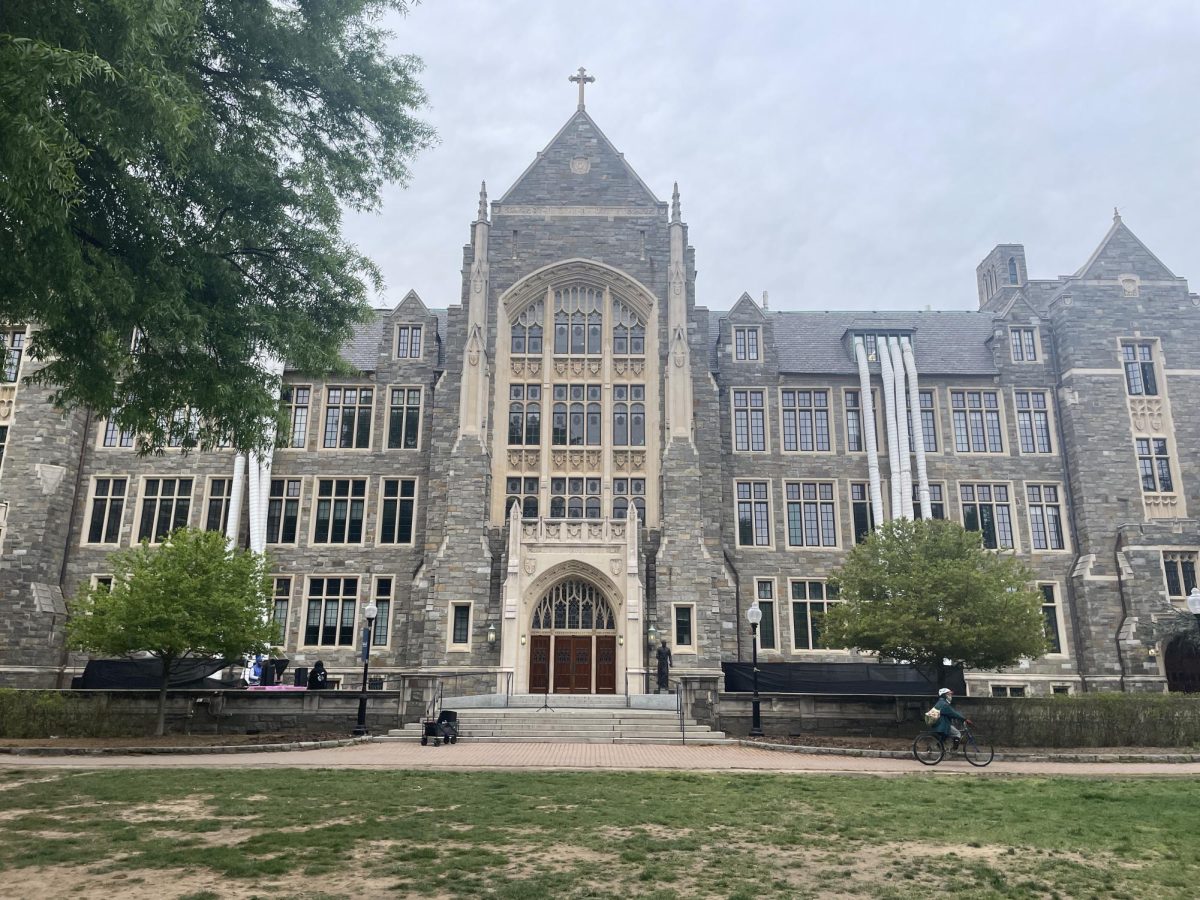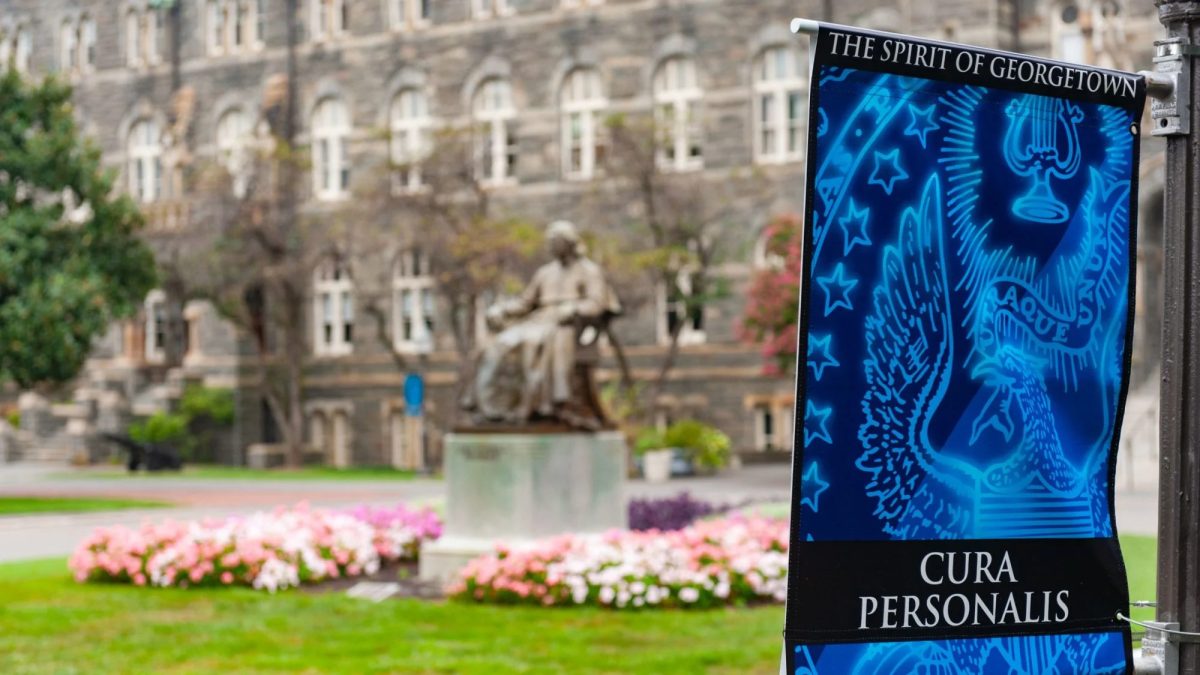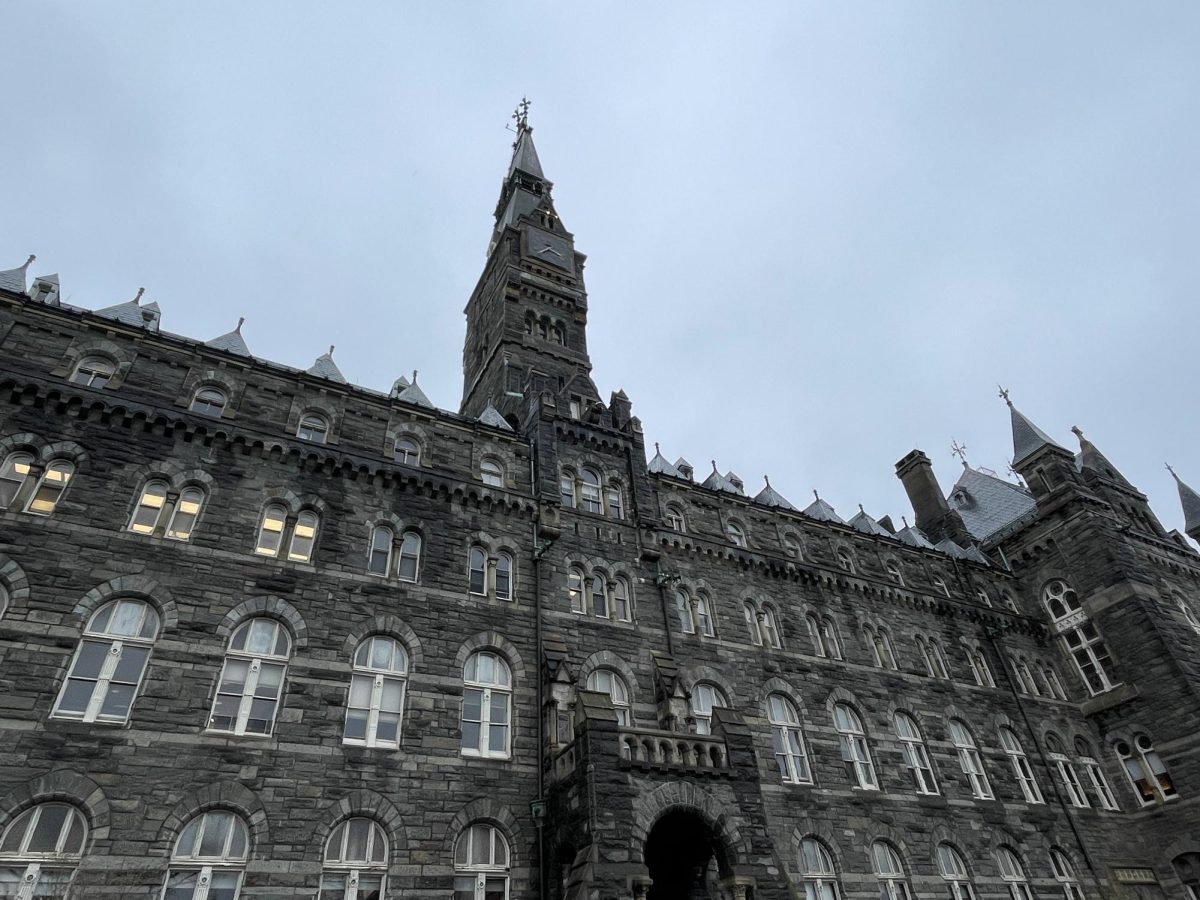
The Georgetown University Student Association Finance and Appropriations Committee allocated the FY 2018 student activities fee budget, including a 39.5 percent budget cut for the Media Board.
The Media Board’s student activities fee funding is set to decrease from $95,000 to $57,500 — a 39.5 percent cut — as approved Sunday in the Georgetown University Student Association Finance and Appropriation Committee fiscal year 2018 budget.
The budget, approved unanimously by the 28-person GUSA senate Sunday, allocates exactly $1,000,640 collected from the annual student activities fee to Georgetown’s advisory boards and other student activities, including the Lecture Fund and Georgetown Program Board.
Most advisory boards received an increase in their appropriations, with the Advisory Board on Club Sports receiving an 8 percent increase from $185,000 to $200,000 and the Campus Ministry Student Forum gaining a 4.9 percent increase from $18,500 to $19,400.
GUSA received $23,950, with a requirement that the GUSA Fund allocation, which provides funding for other student groups, must not exceed $15,000 and that the Transfer Council, which coordinates programming for transfer students, shall receive a $5,000 internal budget allocation.
The overall allocation represents a $2,438 increase from last fiscal year’s $998,202 budget. Advisory boards requested a total of exactly $1,344,242.63.
Members of Fin/App serve as liaisons to the advisory boards in the budget allocation process.
Fin/App Media Board Liaison Alejandro Serrano (MSB ’17) said the Media Board had not shown requisite responsibility for its own expenditures and needs, especially relating to the media outlets that print their publications.
“The consensus was that they were not as fiscally precise as other budget boards. No one has any idea what the percentage of print readership is, and if there’s no justification for printing more — we have a very limited budget,” Serrano said.
Serrano said The Hoya’s decision to become a full-scale online daily and print weekly starting next school year reaffirmed Fin/App’s reasoning for cutting the Media Board budget.
“The moment we found that out was during the appeals meeting, and when they said that, I thought there was no reason, then, to ever increase it. It reinforced our conviction,” Serrano said.
Media Board Chair Paul Henderson (COL ’18), who represents Georgetown University Radio, said Fin/App does not understand the value the Media Board offers the Georgetown community.
“I don’t know whether to call it lack of understanding or lack of concern with the value of media organizations on campus from Fin/App,” Henderson said. “During the whole process, they very much expressed their discontent that Media Board organizations don’t generate a lot of revenue, and it’s true; they don’t.”
Henderson said the budget cut will have a significant impact on the products Media Board groups can offer next year. According to Henderson, WGTB will most likely not be able to host its Fall Concert next semester.
“It will be pretty drastic,” Henderson said. “What this effectively does is freeze Media Board organizations. This will mainly hurt marketing, outreach and events, which are really the three things within a publication that draw new members.”
The Performing Arts Advisory Council received an $82,000 allocation, identical to its allocation from last year. However, the allocation was only 72 percent of the about $113,000 requested.
In Fin/App’s explanation of the budget allocations, PAAC Liaison Senator Josh Sirois (SFS ’20) said PAAC did not receive its full allocation because students should not be paying for capital improvements to university facilities — the portion of the allocation PAAC was denied. Poulton Hall, the home of Mask and Bauble, requires a $100,000 renovation to its floor, according to PAAC Vice Chair Taylor Oster (SFS ’17), PAAC’s representative to Fin/App.
Oster said Fin/App’s funding decision is still concerning regarding the future of performing arts.
“We will be able to ensure the programming performing arts groups put on on campus,” Oster said. “We were flat-out rejected for our capital improvements request, which has not happened in years past, which was a little disconcerting. If the university isn’t fulfilling its obligation to student groups in terms of capital improvements, then someone needs to pick up the bill, and we needed the student activities budget.”
Fin/App declined the Council of Advisory Board’s first budget request in recent memory due to a lack of clarity in the proposal over how CAB would use its funding.
Oster said Fin/App’s rejection of CAB is fair considering the quality of CAB’s funding proposal.
“CAB is a relatively new entity, so it’s still finding where it belongs on campus. We were brainstorming ways to reach out to students, and we realized we can hold these events, we can do programming, but you need funding for that,” Oster said. “Because this is a new concept for how CAB will interact with the student body, we didn’t really have a set game plan, and I understand why Fin/App was hesitant to offer any kind of funding.”
The Georgetown Program Board, which arranges social and leisure events for the student body, received $93,340, just short of its total from fiscal year 2017 of $94,000. GPB saw its budget cut by $12,000 last year, down from $106,000.
GUSA senator Zachary Oschin (SFS ’20), who is the Fin/App liaison to GPB, said the Board was able to reverse a trend of having its budget cut through a well-attended year of programming.
“GPB has been the most cut group in Georgetown history, partially because some of the previous Program Boards had been irresponsible with their money, and mostly because it was an easy thing to pick on,” Oschin said. “To their credit, they had an amazing board this year, put on amazing programming, put on events throughout the year; Mr. Georgetown, the hockey games, the movies — they did really well.”
GPB received an additional $8,340 in the appeals process for its spring concert.
The Georgetown Day tradition returns to the budget for fiscal year 2018 with an allocated $11,500. This April’s Georgetown Day is not financially sponsored by GUSA after the Georgetown Day Planning Committee failed to submit a requested budget to Fin/App last spring.
Serrano said a divide persisted within Fin/App between freshmen and upperclassmen over the importance of Georgetown Day and how much of the yearly budget should be dedicated toward it.
“As a senior, I won’t see the benefit of increasing funding for Georgetown Day — this is for you guys. We know how special it is,” Serrano said. “It’s the one day where there are no other plans, and the entire student body loves it.”
Full disclosure: The Hoya is a member of Media Board.



















Dick Pointer • Apr 1, 2017 at 11:52 am
Obviously this article would fail to mention that the media board representative LIED to the Senate FinApp committee about the existence of some of their revenue streams. BIASED FAKE NEWS.